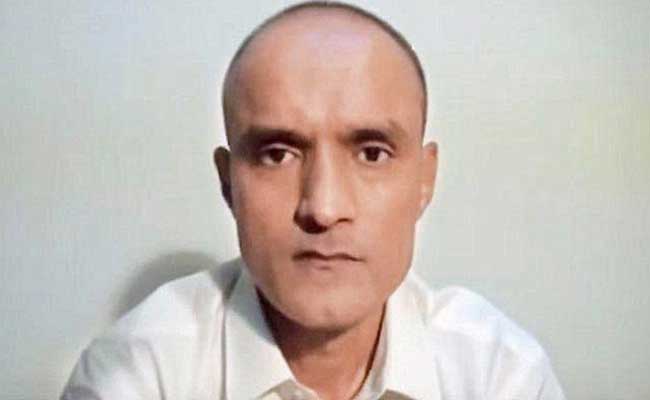8 years ago
The Hague:
The ICJ or International Court of Justice at the Hague gave its verdict today, ruling in favour of India in the Kulbhushan Jadhav case. The top UN court told Pakistan to take all possible measures to ensure that Mr Jadhav is not executed before the international court gives its final verdict. It also told Pakistan to give consular access to India. This is a big diplomatic win for India. Kulbhushan Jadhav, a former Indian naval officer, has been sentenced to death by a military court in Pakistan over alleged espionage in Balochistan. New Delhi said that Pakistan has violated the Vienna Convention on Consular Relations by denying Mr Jadhav, 47, access to legal and other assistance from India. Pakistan has claimed that Mr Jadhav was arrested in March 2016 in the restive province of Balochistan. India says he was kidnapped from Iran and dismisses allegations made by Pakistan. There has been a long-running conflict in Balochistan between Pakistani security forces and a militant separatist movement. Speaking after the verdict, India's attorney general Mukul Rohatgi said, "Kulbhushan Jadhav cannot be executed before a final verdict. Today, every single Indian is with Kulbhushan Jadhav and his family. I would like to congratulate the Ministry of External Affairs. The world knows that there was no fair trial. Pakistan's military trial does not have merit." The attorney general also reiterated that "the ICJ's verdict in this case is binding for both India and Pakistan."
ICJ rules in India's favour, says Pakistan cannot execute Kulbhushan Jadhav till final verdict. Here are the highlights:
Ministry of External Affairs spokesperson Gopal Baglay briefed the media after the International Court of Justice's verdict in the Kulbhushan Jadhav case:
1) ICJ has asked Pak to take all measures to ensure Jadhav not executed pending final verdict
2) This is a matter of great relief. I'm sure every Indian is relieved.
3) External Affairs Minister had assured the Parliament that the government will do everything possible to ensure justice to Mr Jadhav. Today she has repeated that assurance.
4) Under PM Modi's leadership, the government will leave no stone unturned to save Mr Jadhav.
5) We hope verdict will remedy the egregious violation of Mr Jadhav's rights. There is no ambiguity in the order.
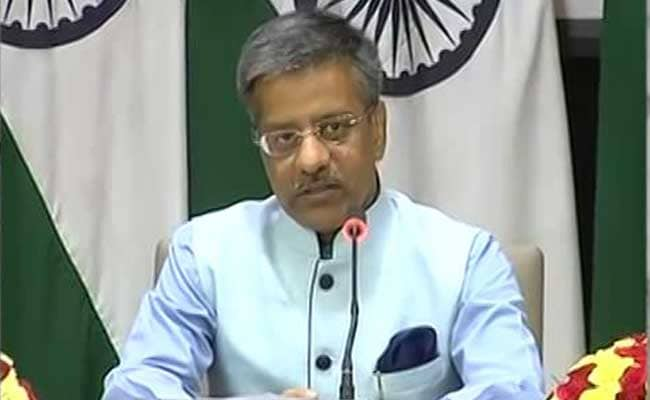
1) ICJ has asked Pak to take all measures to ensure Jadhav not executed pending final verdict
2) This is a matter of great relief. I'm sure every Indian is relieved.
3) External Affairs Minister had assured the Parliament that the government will do everything possible to ensure justice to Mr Jadhav. Today she has repeated that assurance.
4) Under PM Modi's leadership, the government will leave no stone unturned to save Mr Jadhav.
5) We hope verdict will remedy the egregious violation of Mr Jadhav's rights. There is no ambiguity in the order.

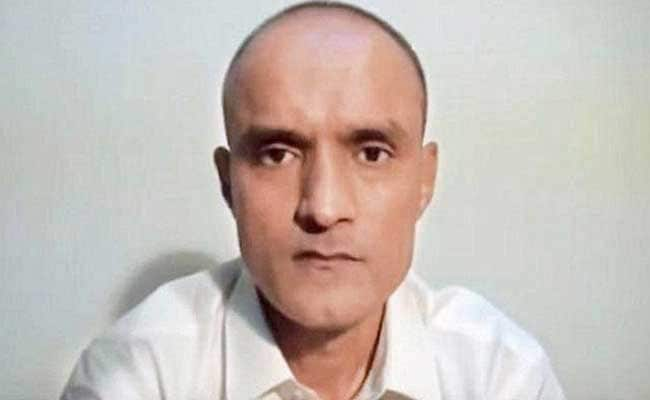 Kulbhushan Jadhav Case: Full Text Of International Court Of Justice (ICJ) Verdict
Kulbhushan Jadhav Case: Full Text Of International Court Of Justice (ICJ) VerdictIn a big diplomatic win for India, the International Court of Justice (ICJ), which is the top UN court, stayed Kulbhushan Jadhav's execution by Pakistan.
Watch The Kulbhushan Jadhav Case Verdict: The International Court Of Justice Rules In India's Favour, Stays Execution Ordered By Pakistan
Kulbhushan Jadhav Case: Prime Minister Narendra Modi speaks with External Affairs Minister Sushma Swaraj after the ICJ or International Court of Justice ruled in India's favour. PM Modi thanked Sushma Swaraj and appreciated the efforts of her ministry. The Prime Minister also appreciated senior lawyer Harish Salve for his efforts in the case.
Pakistan's arguments are not sufficient to deny rights invoked by India: International Court of Justice
This is a big win for India and for human rights. Kulbhushan Jadhav cannot be executed before a final verdict. Today, every single Indian is with Kulbhushan Jadhav and his family. I would like to congratulate the Ministry of External Affairs. The world knows that there was no fair trial. Pakistan's military trial does not have merit. The ICJ's verdict in this case is binding for both India and Pakistan: Attorney General Mukul Rahatgi
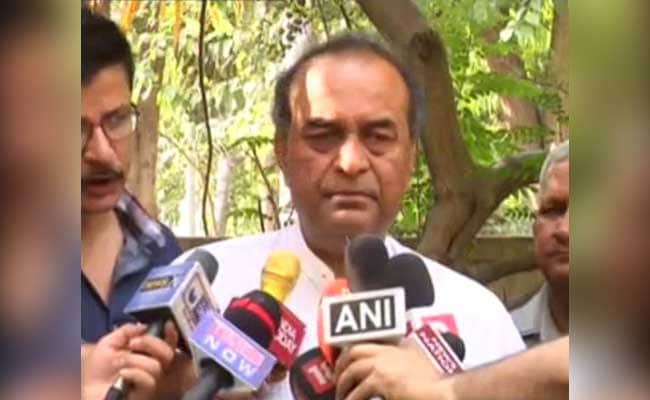

Breaking News: The International Court of Justice gives verdict in favour of India. Tells Pakistan not to execute Kulbhushan Jadhav, as well as give consular access to India. This is a big diplomatic win for India.
Breaking News: Pakistan must take all steps to ensure Kulbhushan Jadhav isn't executed, says UN court
Breaking News: Pakistan should have given India consular access to Kulbhushan Jadhav, says UN court
It appears that the rights invoked by India in this case are plausible: International Court of Justice
Breaking News: UN court says it has jurisdiction on Pakistan's failure to grant consular access to Kulbhushan Jadhav
The court notes that the Vienna Convention does not exclude persons arrested for charges of spying or terrorism: International Court of Justice
The court notes that the access denied to Kulbhushan Jadhav appears to fall within its jurisdiction: International Court of Justice
The context can be summarised as follows... Kulbhushan Jadhav has been in Pakistan's custody since the March 3, 2016. Details of his arrest remain under dispute: International Court of Justice
The International Court of Justice or ICJ has begun reading out the order in the Kulbhushan Jadhav case. The verdict will be out shortly.
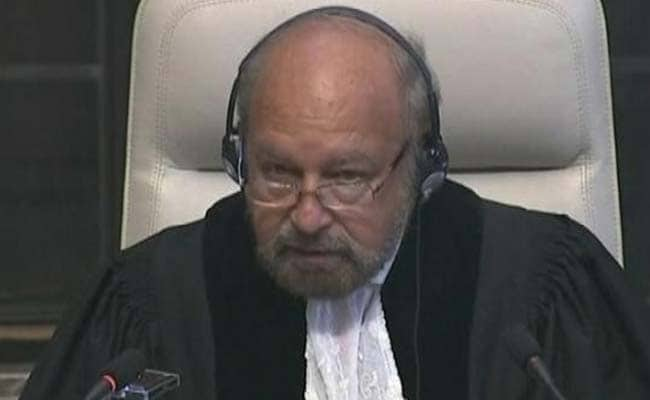

People from across India have come out in support of Kulbhushan Jadhav, a former naval officer, who India says was kidnapped from Iran and now facing a death sentence in Pakistan over alleged "espionage" activity in Balochistan. India has dismissed Pakistan's charges and has repeatedly been asking for consular access, which Pakistan has denied.
Students of a school in Moradabad hold special ceremony in support of #KulbhushanJadhav pic.twitter.com/VkywuTRoNT
- ANI UP (@ANINewsUP) May 18, 2017
Locals hold 'Hawan' in Mumbai, ahead International Court of Justice's verdict on #KulbhushanJadhav today pic.twitter.com/aimuMc3mbf
- ANI (@ANI_news) May 18, 2017
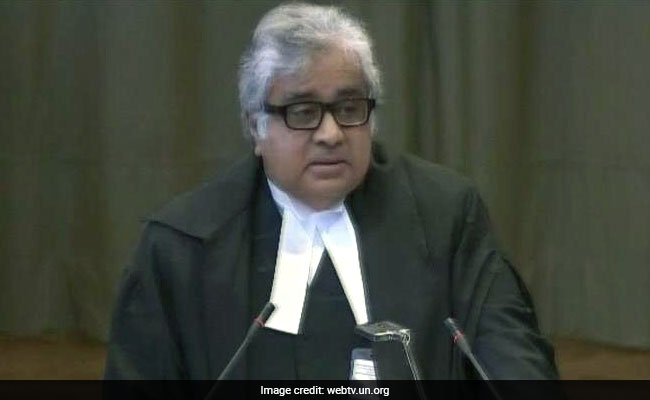 Senior Lawyer Harish Salve Charges Only Rs 1 To Fight Kulbhushan Jadhav's Case At ICJ
Senior Lawyer Harish Salve Charges Only Rs 1 To Fight Kulbhushan Jadhav's Case At ICJUnion Minister Sushma Swaraj has revealed that senior advocate Harish Salve charged only Rs 1 to argue Kulbhushan Jadhav's case at the International Court of Justice. The former Solicitor General of India spoke for nearly one-and-a-half hours to present India's appeal against the death sentence to Mr Jadhav.
The last time India and Pakistan met at the International Court of Justice:
India and Pakistan last faced each other at the top UN court when the Indian Air Force shot down Pakistan's maritime aircraft Atlantique in the Kutch region in 1999. While Pakistan sought damages worth $60 million from India, a 16-judge bench voted 14-2 in India's favour after a four-day hearing.
India and Pakistan last faced each other at the top UN court when the Indian Air Force shot down Pakistan's maritime aircraft Atlantique in the Kutch region in 1999. While Pakistan sought damages worth $60 million from India, a 16-judge bench voted 14-2 in India's favour after a four-day hearing.
Dr Deepak Mittal, who is leading the Indian delegation at the International Court of Justice informed the court that "Pakistan is in violation of the Vienna Convention. Kulbhushan Jadhav is held without getting any consular access. He now faces execution. Mr Jadhav has been sentenced to death by a military court in Pakistan in violation of rights under article 36." He further said that "Despite repeated requests by India, Pakistan has not given any evidence or document to India." He also informed the UN court that "There has been no response by Pakistan to allow Mr Jadhav's parents to visit him, despite multiple requests."
"India and Pakistan are both parties of the United Nations and thereby of the Vienna Convention. There is a bilateral agreement between India and Pakistan, which mentions article 36," Dr Mittal said.
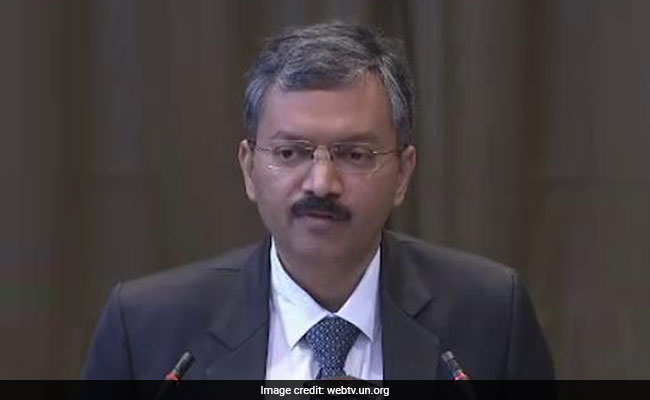
"India and Pakistan are both parties of the United Nations and thereby of the Vienna Convention. There is a bilateral agreement between India and Pakistan, which mentions article 36," Dr Mittal said.

Reading out India's appeal, the International Court of Justice said, "India has asked the International Court of Justice that Pakistan take all measures necessary to ensure Kulbhushan Jadhav is not executed. According to article 74, a request for provisional measure will have priority over all other requests."
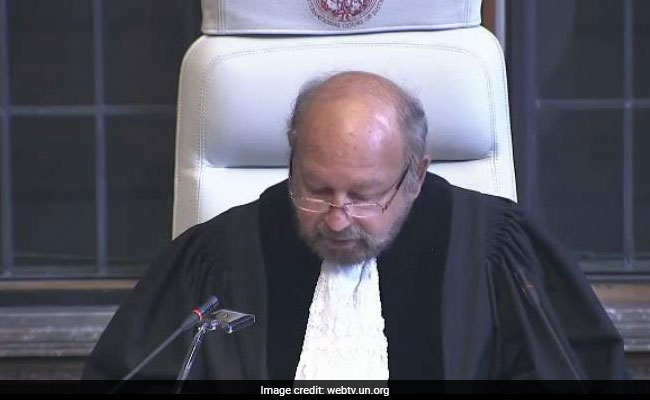

This is the first time since 1960 that Pakistan had attempted to taper the world court's jurisdiction applicable to Pakistan. It isn't clear how the change would impact India's case, if at all.
Pakistan has curtailed the powers of the International Court of Justice to rule on matters that impinge on its national security or come within its domestic jurisdiction. The change, which was made by Pakistan in a hurry, came into effect from 29 April. Pakistan had done so in anticipation of India approaching the international court, particularly given how India had been repeatedly sending requests to seek consular access to Kulbhushan Jadhav. Since his arrest in March last year, India had sent 16 requests to Pakistan, four of which were made last month.
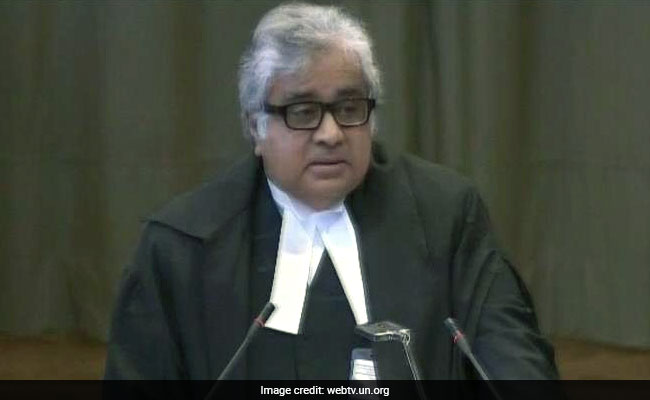 Five Important Points India Made Against Pak At UN Court In Kulbhushan Jadhav Case
Five Important Points India Made Against Pak At UN Court In Kulbhushan Jadhav CaseIndia has informed the ICJ or International Court of Justice about Pakistan's gross violations of the Vienna Convention. Here are a 5 important facts that India informed the top UN court about.
India has not approached the international court on any case related to Pakistan since 1971, but the government has said it had no choice as the life of an Indian citizen is at stake. India has appealed to the International Court of Justice to annul Mr Jadhav's death sentence and ensure that Pakistan does not act against the rights of India or of Mr Jadhav.
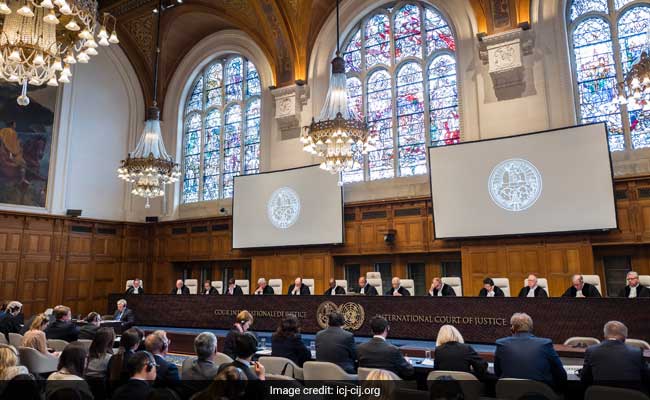

Last week, after India challenged the death sentence given to Kulbhushan Jadhav, Pakistan was asked by the International Court to put it on hold. Pakistan on Monday alleged that calling it a "stay order" was India's "manoeuvre". Pakistan also said that Mr Jadhav's passport bears a Muslim name. They further claimed that India had been unable to explain it.
Describing Kulbhushan Jadhav's trial by a Pakistani military court as "farcical" and without a shred of evidence, Mr Salve said he was not given a lawyer until the trial was nearly over. "The basic rights of Kulbhushan Jadhav were thrown to the winds," he said. India further informed the top UN court that Pakistan had violated the Vienna Convention by denying India consular access to Mr Jadhav 16 times and denying him the right to defend himself.

(Senior lawyer Harish Salve presenting India's case at the International Court of Justice)

(Senior lawyer Harish Salve presenting India's case at the International Court of Justice)
Representing India at the ICJ, senior lawyer Harish Salve told the top UN court that, "The situation is grave, it is urgent, and hence we approached this court at such short notice." He urged the court to suspend Mr Jadhav's death sentence immediately. Mr Salve brought to the court's notice that Pakistan had repeatedly denied consular access to India and no document of Kulbhushan Jadhav's trial process was given by Islamabad. This, he said, was in violation of the Vienna Convention on Consular Access.
On Monday, India informed the ICJ that there was an "immediate threat" that Indian national Kulbhushan Jadhav may be executed by Pakistan even before a decision of the top UN court. Pakistan then assured that there would be no immediate execution, saying that it won't happen at least for the next six months.
On May 8, India moved the ICJ (International Court of Justice) against the death penalty handed down to Kulbhushan Jadhav by a Pakistan military court, slamming Pakistan for violating the Vienna Convention on Consular Relations. On May 9, the highest court in the United Nations gave Mr Jadhav a lease of life. India, in its appeal to the ICJ asserted that Mr Jadhav was kidnapped from Iran where he was involved in business activities after taking early retirement from the Indian Navy. India has denied that he has any connection with the government.
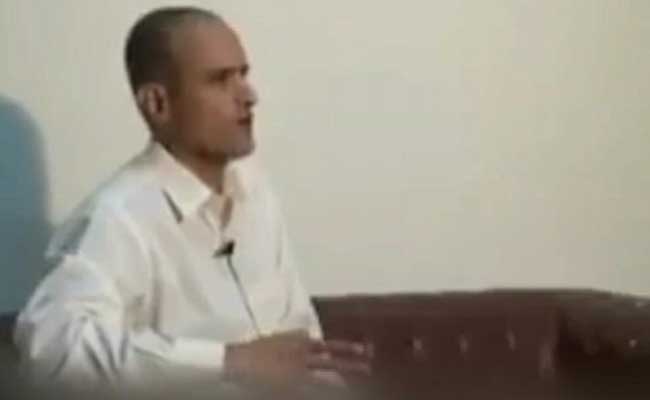
(Kulbhushan Jadhav, who India says was kidnapped from Iran, before Pakistan accused him of "espionage and sabotage" activity in Balochistan)

(Kulbhushan Jadhav, who India says was kidnapped from Iran, before Pakistan accused him of "espionage and sabotage" activity in Balochistan)
Last week also, frosty Indo-Pak relations were on full display when Finance Minister Arun Jaitley was on the dais with his Pakistani counterpart Ishaq Dar at the ADB annual meeting in Yokohama, Japan.
 Kulbhushan Jadhav Death Sentence Case: ICJ To Rule On India vs Pakistan Today
Kulbhushan Jadhav Death Sentence Case: ICJ To Rule On India vs Pakistan TodayIndia will find out today if it has won its case against Pakistan at the UN's top court over the execution of Kulbhushan Jadhav, a former naval officer, who has been sentenced to death after being convicted of espionage by a Pakistani military court.
Reflecting the chill in Indo-Pak ties, a curt 'namaskar' was all that a senior Indian diplomat had to offer to an extended hand of a member of the Pakistani delegation at the International Court of Justice (ICJ), hearing the Kulbhushan Jadhav case on Monday. Deepak Mittal, who is the head of the Pakistan division in the Ministry of External Affairs and is representing India in the retired Navy officer's case at the ICJ, ignored the handshake gesture by Pakistan's Syed Faraz Hussain Zaidi and offered a 'namaskar' instead.
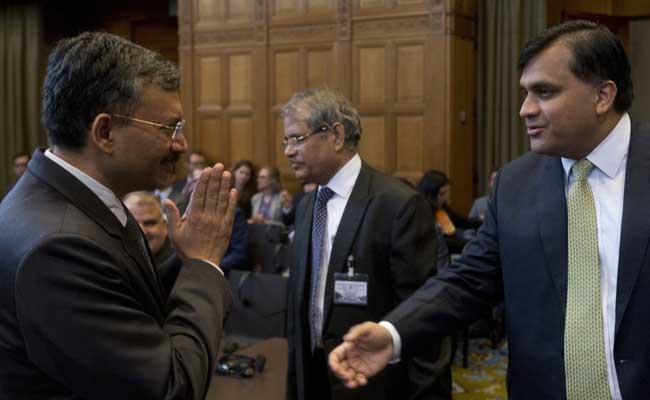

The Kulbhushan Jadhav case has sharply escalated tension between New Delhi and Islamabad. Relations between India and Pakistan have already been strained in the aftermath of the beheading of two Indian soldiers by the Pakistan Army along the Line of Control.
Pakistan has said that no date has been set for the execution and that the sentence remains open to appeal. Islamabad's representative at the hearing accused that India's complaint was "political theatre" and the court "should not exercise any jurisdiction in the case". Pakistan argued that consular access is not an absolute right under the Vienna Treaty, and that a 2008 bilateral treaty between India and Pakistan supercedes it anyway.
According to Islamabad, Kulbhushan Jadhav confessed to being tasked by India's intelligence agency - the Research and Analysis Wing or RAW - with planning, coordinating and organising espionage and sabotage activities in Balochistan "aiming to destabilise and wage war against Pakistan." India has completely rejected all those charges. Its representative at the top UN court, Deepak Mittal, described the charges against Mr Jadhav as "concocted" and his closed trial by an army court as "farcical."

(India's representative at the International Court of Justice Dr. Deepak Mittal)

(India's representative at the International Court of Justice Dr. Deepak Mittal)
Arguing that the top UN court doesn't have jurisdiction in the matter, Pakistan responded to India's appeal by telling the court that it should decline jurisdiction in the case. Pakistan has claimed that Mr Jadhav was arrested in March 2016 allegedly in the restive province of Balochistan. There has been a long-running conflict in Balochistan between Pakistani security forces and a militant separatist movement. Syed Faraz Hussain Zaidi presented Pakistan's case at the ICJ (International Court of Justice).
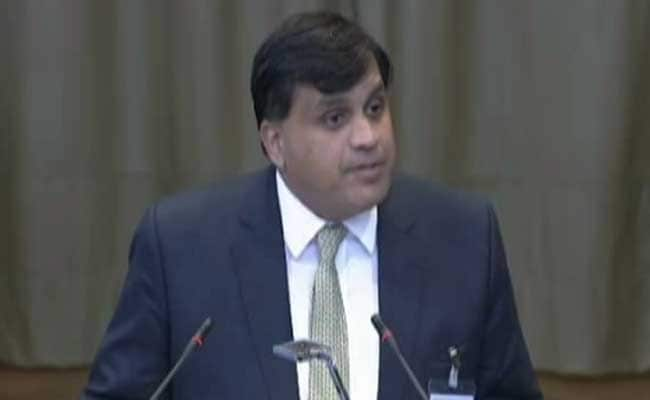

India said that Pakistan has violated the Vienna Convention on Consular Relations by denying Mr Jadhav, 47, access to legal and other assistance from India, and that Pakistan should be ordered to stop his execution. Senior lawyer Harish Salve presented India's case at the ICJ (International Court of Justice).
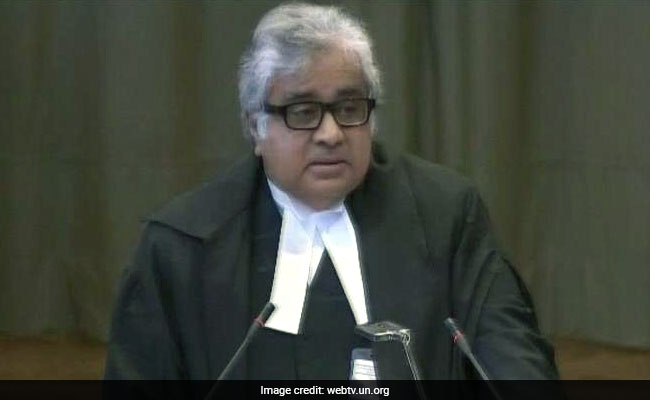

India will know today if it has won its case against Pakistan at the UN's top court over the planned execution of Kulbhushan Jadhav, a former Indian naval officer, who has been sentenced to death over alleged espionage by a Pakistani military court.
